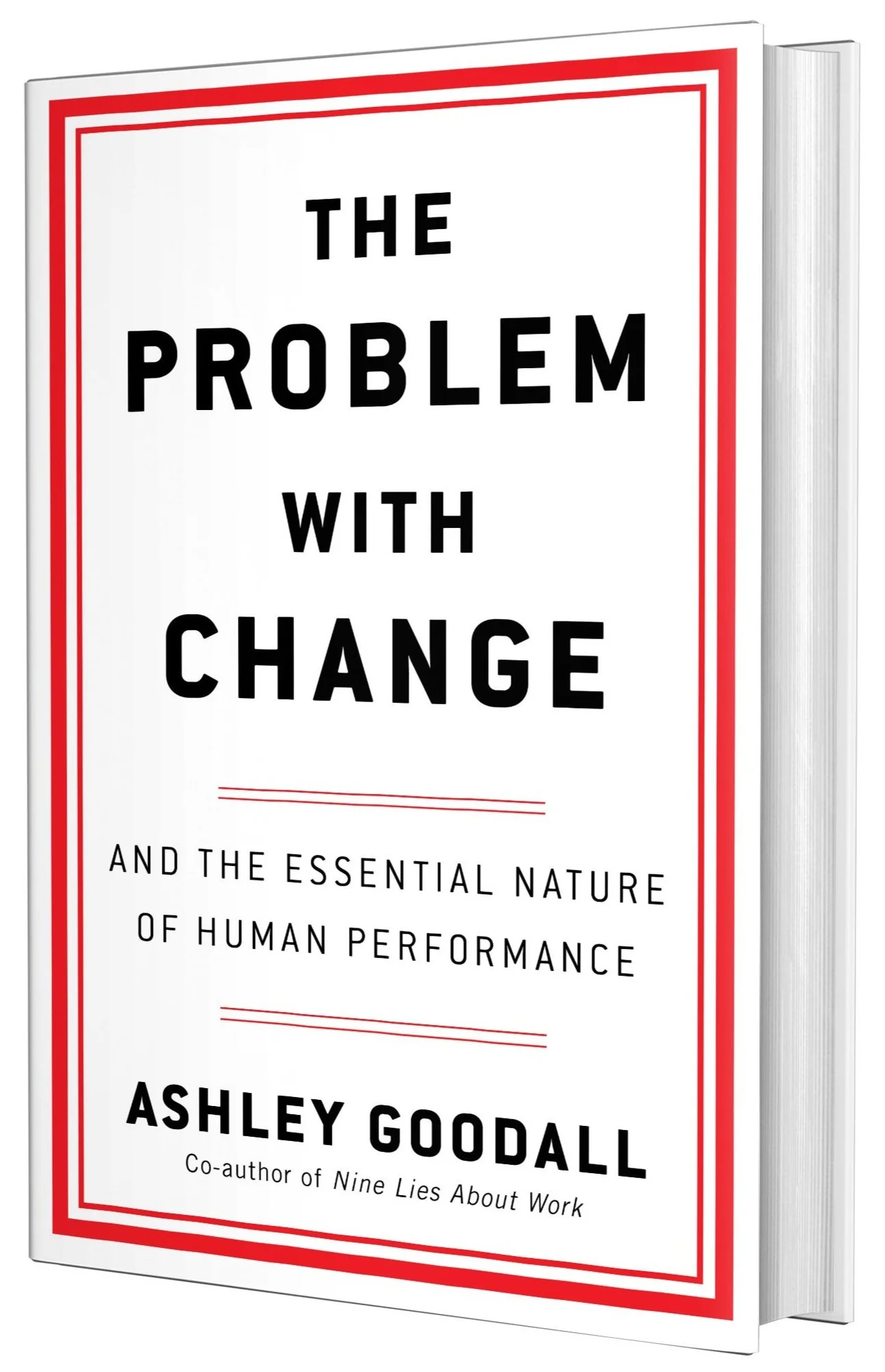Why is constant change bad for business? Because it’s bad for human performance.
For decades, “disruption” and “change” have been seen as essential to business growth and success. In this provocative and incisive book, Ashley Goodall argues that what has become a sacred dogma is both wrong and harmful.
Whether it’s a merger or re-org or a new office layout, change has become the ultimate easy button for leaders, who pursue it with abandon, unleashing a torrent of disruption on employees. The result is what he calls “life in the blender”—a perpetual cycle of upheaval, uncertainty, and unease.
The problem with change, Goodall argues, is that a culture where everything from people to processes to strategic priorities are constantly in flux exerts a psychological toll that undermines motivation, productivity, and quality. And yet so accustomed are we to constant churn that we have become numb to its very real consequences.
Drawing on two decades spent leading HR organizations at Deloitte and Cisco, Ashley Goodall reveals the truth about human performance and offers a radical new alternative to the constant turbulence that defines corporate life.
The Problem with Change is a clarion call to leaders everywhere: by prioritizing team cohesion (instead of reshuffling teams at will), using real words (rather than corporate-speak), by sharing secrets (not mission statements), by honoring shared rituals (rather than mandated bonding), by fixing only the things that are truly broken (instead of moving fast and breaking everything in sight), and more, leaders at every level can create the stability that people need to thrive.
Advance praise for
The Problem with Change
“Ashley Goodall's The Problem with Change is a timely exploration of the complexity of organizational transformation. It dispels the myth that change is an unqualified good and tackles the hard truths about the challenges it brings. With an honest and insightful look at the intricacies of change management, Goodall offers a fresh perspective that questions our readiness to disrupt and provides a nuanced discussion on stability in the workplace. As someone deeply invested in the growth and development of leaders and organizations, I believe this book is a crucial read for anyone looking to navigate the often turbulent waters of change.”
―Dr. Marshall Goldsmith is the Thinkers50 #1 Executive Coach and New York Times bestselling author of The Earned Life, Triggers, and What Got You Here Won’t Get You There
“Ashley Goodall has achieved something rare and wonderful: he has taken a subject with which we are all deeply familiar—change—and turned it upside down. And in so doing, he has not only revealed “the problem with change,” but also how to find within it all the resiliency and creativity we need to succeed. The Problem with Change is a completely engaging book that causes us to reassess much of what we’ve all mistaken for “truth” and reveals insights and ideas we can never unsee. Given how much change we are all grappling with today, this book could not be more timely. It is a must read for any leader trying to find their bearings in these wildly turbulent times.”
―Marcus Buckingham, Bestselling author and strengths researcher
“In a world that can be obsessed with disruption for its own sake, The Problem with Change is an urgent wake-up call for managers and executives at all levels. In this refreshingly clear-eyed new book, Ashley Goodall argues that excessive and indiscriminate change comes at a steep cost, one that leaders are often unaware of. For change to be beneficial, it must be undertaken thoughtfully, deliberately, and with the employees and their experience front and center.”
―Hubert Joly, former Best Buy CEO, senior lecturer Harvard Business School, Author, The Heart of Business
“In this wonderful book, Ashley Goodall spells out what we all know is true: disruption is more often than not an assault on the continuity that brings meaning to our work lives. A must-read for any leader interested in a more thoughtful, less destructive approach to change.”
―Herminia Ibarra, The Charles Handy Professor of Organisational Behaviour at London Business School, author of Act Like a Leader, Think Like a Leader and Working Identity
